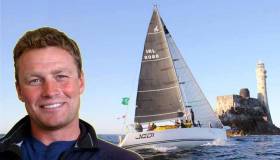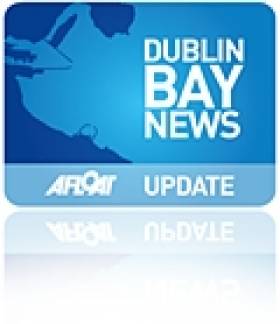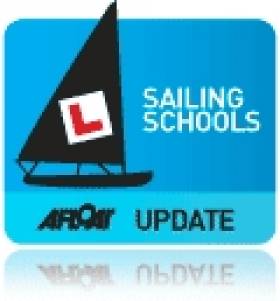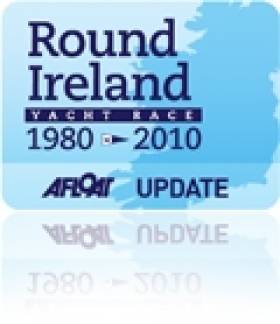Displaying items by tag: Sailing School
Tonight at the INSS: From Sailing an Optimist to an Offshore Racing Yacht & Running a Sailing School
As part of the Irish National Sailing School 40th Birthday Celebrations the country's leading sailing school is hosting a series of free talks and events starting tonight when School Principal Kenneth Rumball will share tales about his background and the pursuit of his hobby including the story of the 2017 Rolex Fastnet Race Campaign and how the lessons learned can be used to encourage more people to try sailing in Ireland.
One of the topics Rumball will cover will be the inside story of the INSS's 2017 Fastnet Race Campaign.
Rumball will chat about his dinghy sailing and youth racing which was where he learned his skills. This section of the talk will be of particular interest to parent of young sailors who may like to get involved in this in the future.
The final section of the talk will deal with what is involved with running the largest training centre in Ireland and the UK and some of our plans for the future. We've a few new announcements planned for those in attendance!
The talk is open to all, please do let INSS know if you're coming along, by email to [email protected] or pop along to the INSS centre on the West Pier at 8pm today March 14th 2018.
#dinghycharter – At the end of the 2014 summer sailing season as we started to look towards the winter racing series and talk of the 1720s racing in the Dublin Bay Sailing Club's Turkey Shoot and Spring Series writes Kenneth Rumball. Our dinghy sailors started to ask what was for them? A bit of head scratching and it was decided that the INSS would charter out our fleets of Lasers and double-handed dinghies to both our junior and adult sailors. Not only would these sailors benefit from having access to a boat to race in but we also supplied an INSS support boat manned by Glyn Williams to give that extra bit of security and also to act as a coach boat giving feedback to our sailors and helping them to progress their sailing. The support boat was also there to support some of our 'own boat' sailors also giving them an extra helping hand.
The 2014-2015 series has been a huge success for our sailors, a shaky start last October where a lot of our sailors who had never raced before all of a sudden were thrown in the deep end and on a race track before they knew where they were. Kenneth and Alexander Rumball who raced in the Fireball and RS400 classes respectively were initially on hand to give helpful hints and advice after races and encourage all sailors along.
It has been fantastic to watch the progress of all our sailors throughout the series which culminated today in the final prize giving of the 2014-2015 series. There were some claims to Silverware from the INSS team with Lorcan Tighe claiming the first Feva trophy in the PY class, Alexander Rumball claiming third in the RS class and Kenneth Rumball and Brian Byrne claiming the overall Fireball trophy.
Plans are already a foot for the DBSC summer racing series, with our fleet available for charter.
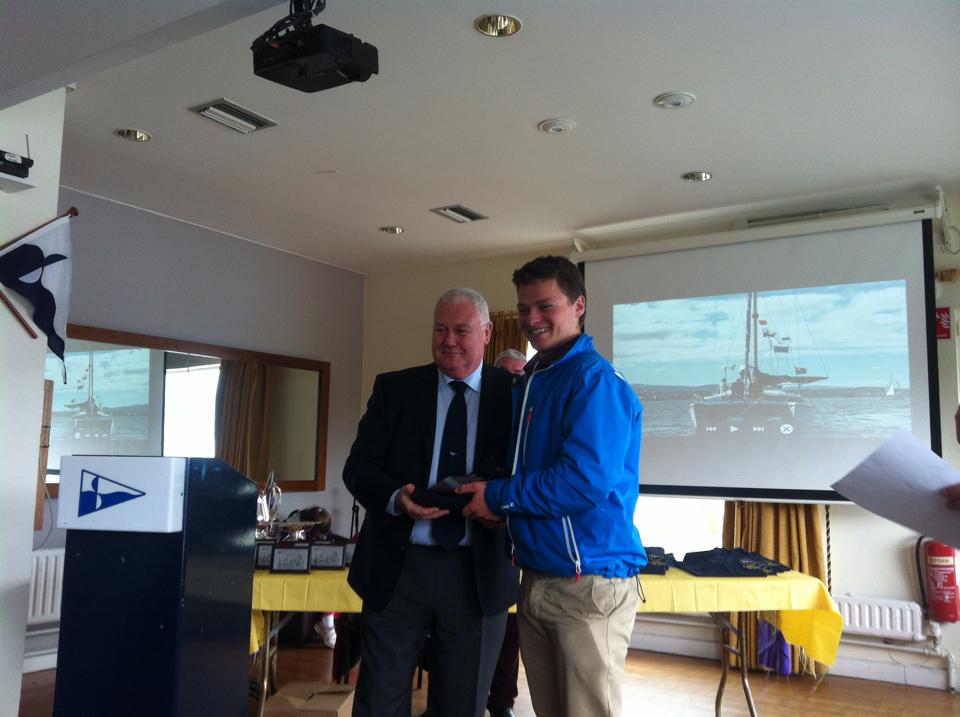
Alexander Rumball who claimed third overall in the RS Class
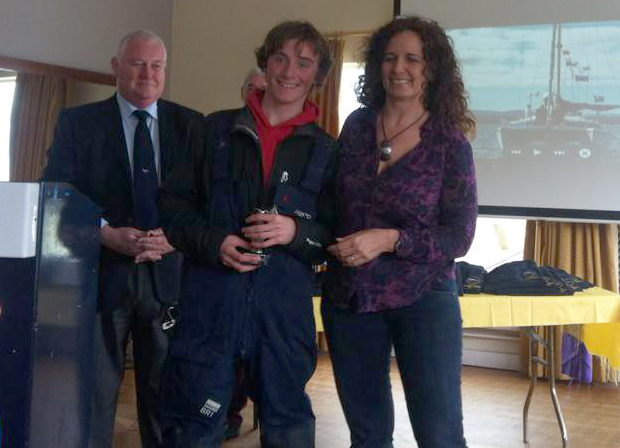
Loran Tighe of the INSS claims the Feva Trophy
#howtosail – This page is prompted by a suggestion by Dingle Sailing Club in County Kerry for a listing of places where you can learn to sail in Ireland without the need for club membership.
Making people aware of the opportunity to learn to sail without the need for boat ownership and/or club membership fees was highlighted by Afloat.ie's Tom MacSweeney as an important part of growing the sport of sailing. The point was clearly illustrated when MacSweeney was approached by a man who wanted his son to learn to sail in Cork but could not afford the relevant club membership fees.
If you offer learn to sail tuition in dinghies, keelboats, kitesurfers or windsurfers without the need for club membership fee please add your details in the comment box below:
The Irish National Sailing School (INSS) is based at the West Pier in Dun Laoghaire, and it is the largest sailboat training provider in Ireland.
INSS has been introducing people to sailing and boating since 1972.
READ ALL THE LATEST NEWS FROM THE INSS HERE
The school provides all the essential gear, boats and buoyancy aids, while wetsuits can be hired by the week.
Instructors are very experienced, and are fully insured.
The school has a long tradition of teaching children in a pressure free, relaxed environment and works a lot with local community groups and schools.
Courses are either RYA (Royal Yachting Association) or ISA (Irish Sailing Association) certified.
#sailinginstructors – 16 instructor candidates have successfully passed an intensive one week Royal Yachting Association (RYA) Dinghy Instructor course at the Irish National Sailing School (INSS) in Dun Laoghaire.
The new instructors have been working hard since last October to to successfully complete this course.
The three RYA trainers looking after the group were 'hugely impressed with the standard of these instructors and declared them to be a fantastic group', accroding to Kenneth Rumball of the INSS.
The instructors have a well earned break before commencing careers at the Dun Laoghaire Sailing School.
Sailing West for Round Ireland
The rule is simple; Keep Ireland and all her islands to starboard. For the captain and crews undertaking the Round Ireland Yacht race this summer with Sailing West on their Sunfast 37 and Reflex 38, one can add the following rules: Keep everyone safe, Keep to the Rhumb line and Get back on the Rhumb Line!
The sailing school - based from Dun Laoghaire - aims to include up to 20 Irish sailors in the key event. The crews will be made up of sailors from all backgrounds and disciplines who have a passion for sailing.
More on the Round Ireland Yacht Race:
Round Ireland Yacht Race 2010 Review
Round Ireland Yacht Race, Ireland's top offshore fixture
A Round up of 80 stories on the 2010 Round Ireland Yacht Race


























